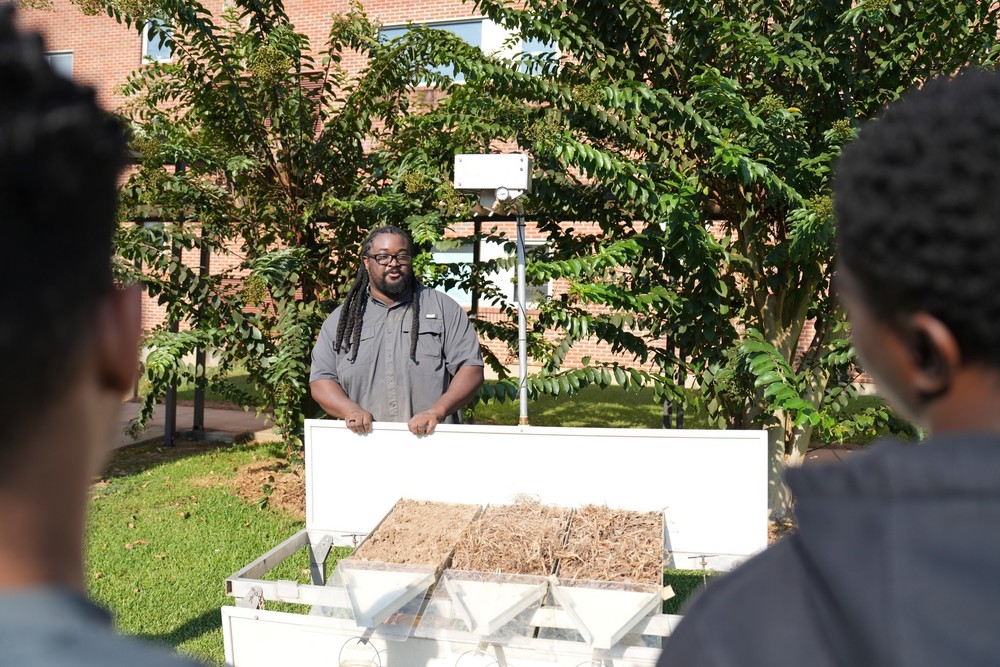Magee High School agriculture students recently received a hands-on lesson in soil science, thanks to a visit from Lee Jones, a soil scientist with the USDA Natural Resources Conservation Service (NRCS). Jones spoke to Mr. Patrick Morgan’s agriculture classes on the importance of soil in agriculture, sustainability, and everyday life.
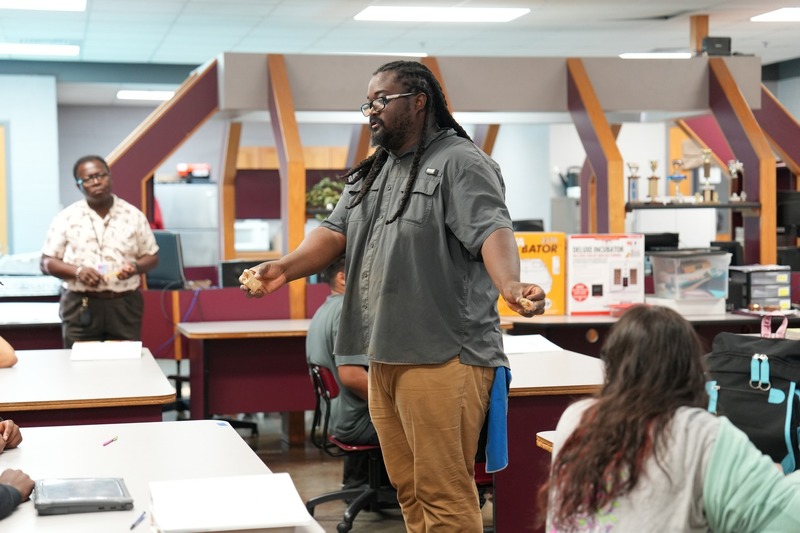
The presentation focused not just on the composition and characteristics of soil, but also on its critical role in the economy, food supply, and environmental health.
“There’s nothing on this earth that you’ve used today—including the desk you’re sitting in—that didn’t come from soil in some way,” said Jones. “I look at soil and I see money, because I know what it makes possible.”
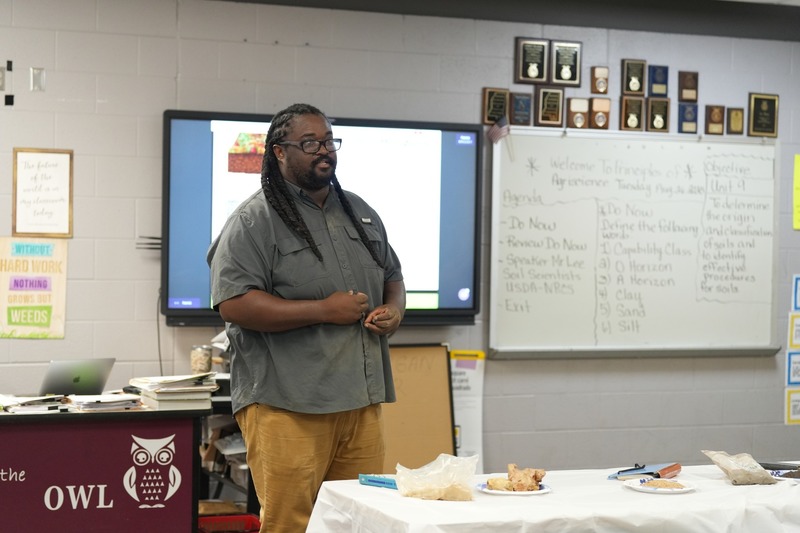
Students learned how soil impacts farming productivity, water quality, and even grocery store prices. Jones emphasized the long timeline of soil formation, noting that one inch of topsoil can take 500 to 1,000 years to develop—making preservation essential for future generations.
The presentation included a demonstration using a rainfall simulator, which showed how different types of ground cover and soil management affect erosion and water runoff. Students observed the impact of covered soil samples—highlighting how poor soil management can lead to nutrient loss and pollution.
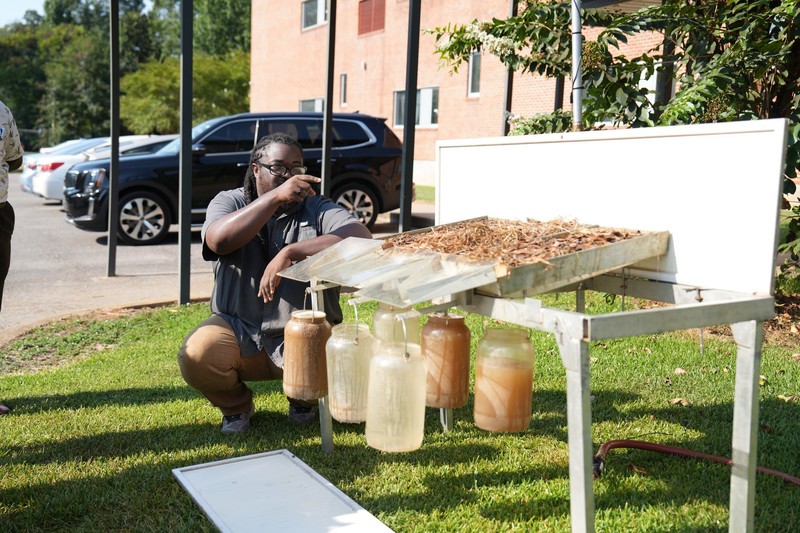
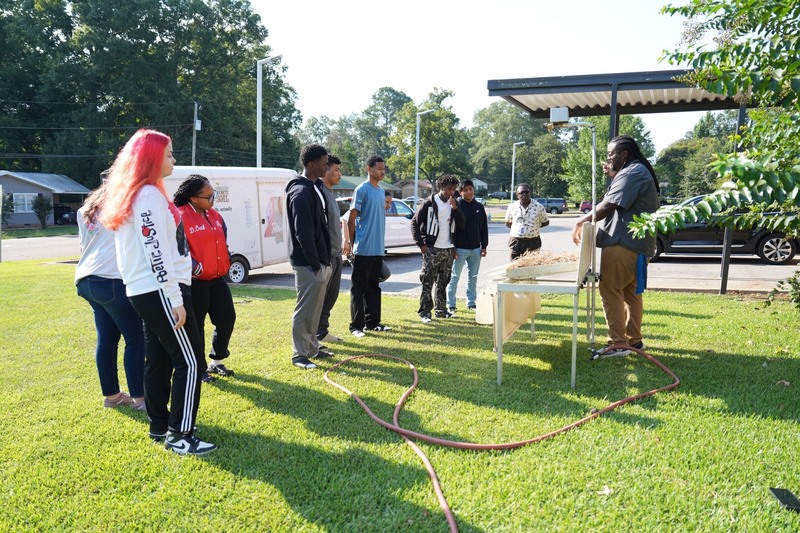
“Properly managed soil can reduce runoff and protect our water,” Jones explained. “When we take care of the soil, everything else benefits—our crops, our food, and our wallets.”
Jones also shared his own educational journey, including how he discovered his passion for soil science after struggling with his initial college major. His story served as encouragement for students exploring career paths in agriculture and natural resources.
Following the indoor presentation, students participated in outdoor demonstrations and had the opportunity to interact with tools and equipment used in soil analysis.
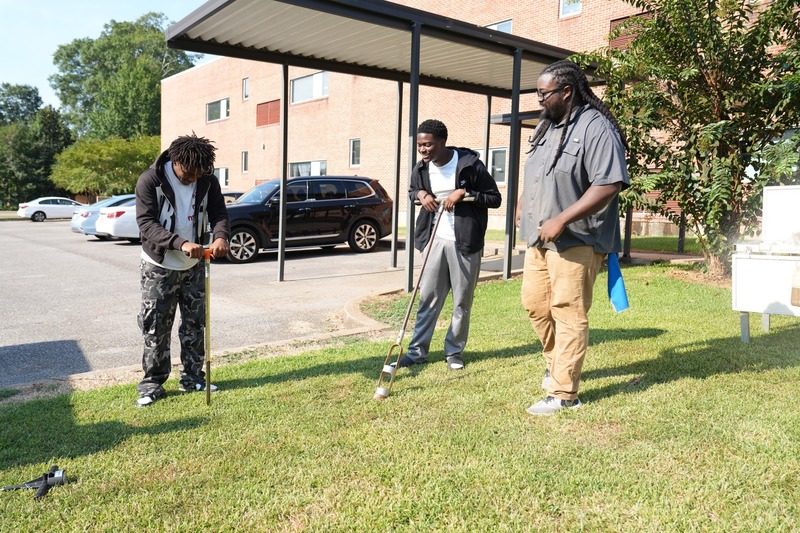
The visit is part of Mr. Morgan’s ongoing efforts to connect students with professionals in agriculture and environmental science. It provided students with both practical knowledge and real-world context for the classroom concepts they study.

